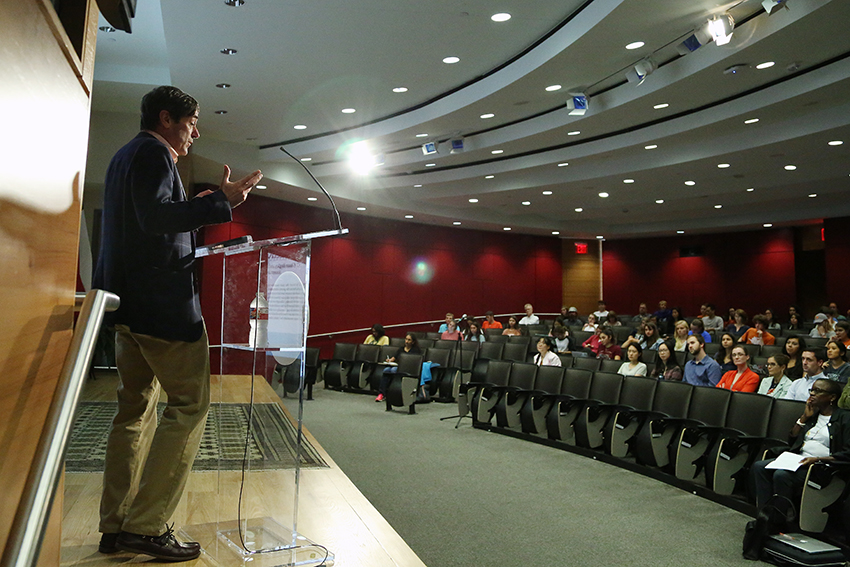The vast majority of small scientific studies are not reproducible, said National Public Radio science desk correspondent Richard Harris to an auditorium of journalism students Thursday night.
Harris gave a lecture about how journalists should distinguish between good and bad science at the Moody College of Communication to a crowd of about 200 students and faculty.
“Who hasn’t felt this phenomenon where every day there’s some new disease or thing that’s either good for you or bad for you?” Harris said. “Science always changes … but the vast majority of small experiments, if you repeated them, wouldn’t hold up. There’s confusion about how to interpret results.”
Harris said scientists today are concerned about a reproducibility crisis in which many experiments are not able to be reproduced, compromising the legitimacy of their findings.
“I argue that there’s not really a crisis but a realization that science is a lot less reliable when you’re looking at it study by study,” Harris said. “We need to be much more cautious when we interpret any single result.”
Journalism sophomore Sahar Chmais said the need for skepticism as a journalist was an important revelation for her.
“We really need more journalists who are communicating ideas from scientists to the mass public,” Chmais said. “Before I blindly believed (scientific) articles … but now I’m second-guessing what is actually valid or not valid.”
It is important for journalists to ask scientists to explain information in a way that a typical audience can understand, Chmais said.
“You should ask the scientist to dumb it down for you,” Chmais said. “You’re not going to be able to write about something if you don’t understand it.”
Environmental engineering freshman Larissa Herold had similar questions about translating science to journalism without embellishing on the significance of scientific findings.
“It’s eye-opening how much is not true and how that makes it trickier for journalists to report (scientific findings) in a correct way,” Herold said. “It’s not that journalists are sensationalizing information. It’s that the information is not what it’s been (portrayed) to be.”
The responsibility to accurately report findings falls on both scientists and journalists, Herold said.
“The journalist needs to make sure that they are conveying the information in a way that’s accurate to the science while also realizing whether the science is good science or bad science,” Herold said. “The scientists’ responsibility is to mitigate the bad science that they’re doing … and not sensationalize it.”





















